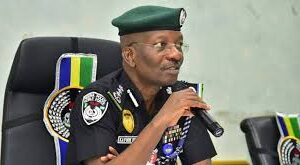Jibrin Baba Ndace
In Nigeria, CSOs and the media played leading role in the return of democracy. In the process some participants paid the supreme sacrifice. Since the return of democracy in 1999, the media and CSOs have continued to play significant role in ensuring respect for rule of law, equity, justice, fairness, transparent elections, transparency and accountability in the management of resource.
“In doing this’, Dazang posited, ‘the Media have found recourse in their reporting and investigative skills and most recently the Freedom of Information (FOI) Act. Civil Society Organisations have also resorted to the FOI Act and are asking pertinent questions about government policies, budgets and expenditures.’
There is a symbiotic relationship between the CSOs and the Media. While the Media has served as platform for CSOs on the one hand, the CSOs have also served as a source of credible information for the Media on the other hand. Through, the Media, CSOs are able to make meaningful impact.
There is need for continuation of such robust relationship especially with the increasing security challenges in Nigeria.
De-escalating tension through caption of news items
This is a very vital point, in our quest for a secured Nigeria. Like a gun, the Media is a double-edge sword. It can be used for public good. It could also be used deployed for destructive purposes. It can be used to defend a nation. It could also be used to destroy a nation. And indeed, the Media have been used to set destructive agenda in Nigeria and other part of the world. As Media practitioners, we must exercise restraint, when we report an incident.
We must weigh the implication of what we report. We must be mindful of fault lines and sensibilities of religion, tribe, ethnicity, regionalism among others. For example, when we conduct an interview, we should know what the agenda of the person we are interviewing is? Like an Africa problem says, “it is not all the cloths that we launder that we dry under the sun for the whole world to see”.
This restrain also applies to the CSOs.
Let me however, hasten to add, that it is always easy to blame the Media when some events are reported in a particular way. We must acknowledge that, the Media, in most instances, are not responsible for incidents that they report. Therefore, all stakeholders must exercise restraint in their comments especially on security issues. We must also recognize that the media have continued to pay the supreme prize for being on the side of the people.
The National Security Adviser, Colonel Sambo Dasuki rtd, at the roll out of soft approach to countering terrorism said: “Though, we may not agree at all the times, but a careful analysis of the press since the insurgency, would reveal that the press has sided with the Nigerian people at great risks to the safety and security of their businesses. We recall the attack on journalists and newspaper houses in Abuja and Kaduna.”
The public must also see media as a competitive business that is further challenged by the advent of social media. Sensationalism sales newspapers.
Non-state actors
Let me however, add, that the biggest challenge that Nigeria faced today is not from the conventional media or old Media, but from the unconventional or new Media, which I like to call, non- state actors. The new media are like the insurgents, they are everywhere and nowhere.
This new communication which is hinged on the internet and satellite communication allows instant sending of data and instant response from a receiver. This include Facebook, Badio, Whatapps, Youtube, Badio, Wikileak, Saharareporter etc. some communication experts have argued that because of the way it operates, “it is known to be effectively used for rumour mongering, political propaganda among others. In some instance, what is posted on the cyberspace is uninformed opinion of an individual whose interest is unknown to many who will access the information.
Building a better relationship between the CSOs and the Media for a secured Nigeria
Let me put on record that a secured Nigeria is in the interest of all. It is in the interest of Nigerians, because they have no any other country to call theirs. It is in the interest of West Africa and Africa, being the biggest Africa nation. It is also in the interest of the global community.
Hence, in our writing as media practitioners, and in our advocacy as CSOs, the first agenda should be a secured Nigeria. The second agenda should be a secured Nigeria. The third agenda should be a secured Nigeria.
In achieving this, there should be more grounds for constructive engagement between the Media and CSOs. The CSOs should carry the media along beyond invitation to cover their events. They should see the Media as a strategic partner.
Above, both the Media and CSOs should develop their capacities on trends, learnt lesson so as to be grounded on current security challenges. The criticism of security agencies should be with knowledge and high sense of responsibility. The Media should continue to provide platform for CSOs to engage on debates on development and security issues.
In conclusion, I will say that having a secured Nigeria is the responsibility of all stakeholders. And like Samuel Abrahams said in Military Review, February 2014, we will have secured Nigeria, ‘when the government secures its citizens continuously, sustains and builds legitimacy through effective governance, has effectively isolated the insurgency, and can manage and meet the expectations of the nation’s entire population.’
Concluded
A paper presented by JIBRIN BABA NDACE, AGM Special Projects and Defence Correspondent, Blueprint Newspaper Limited at a Roundtable organised by Konrad-Adenauer-Stiftung in Abuja on Tuesday, 15 April 2014.



